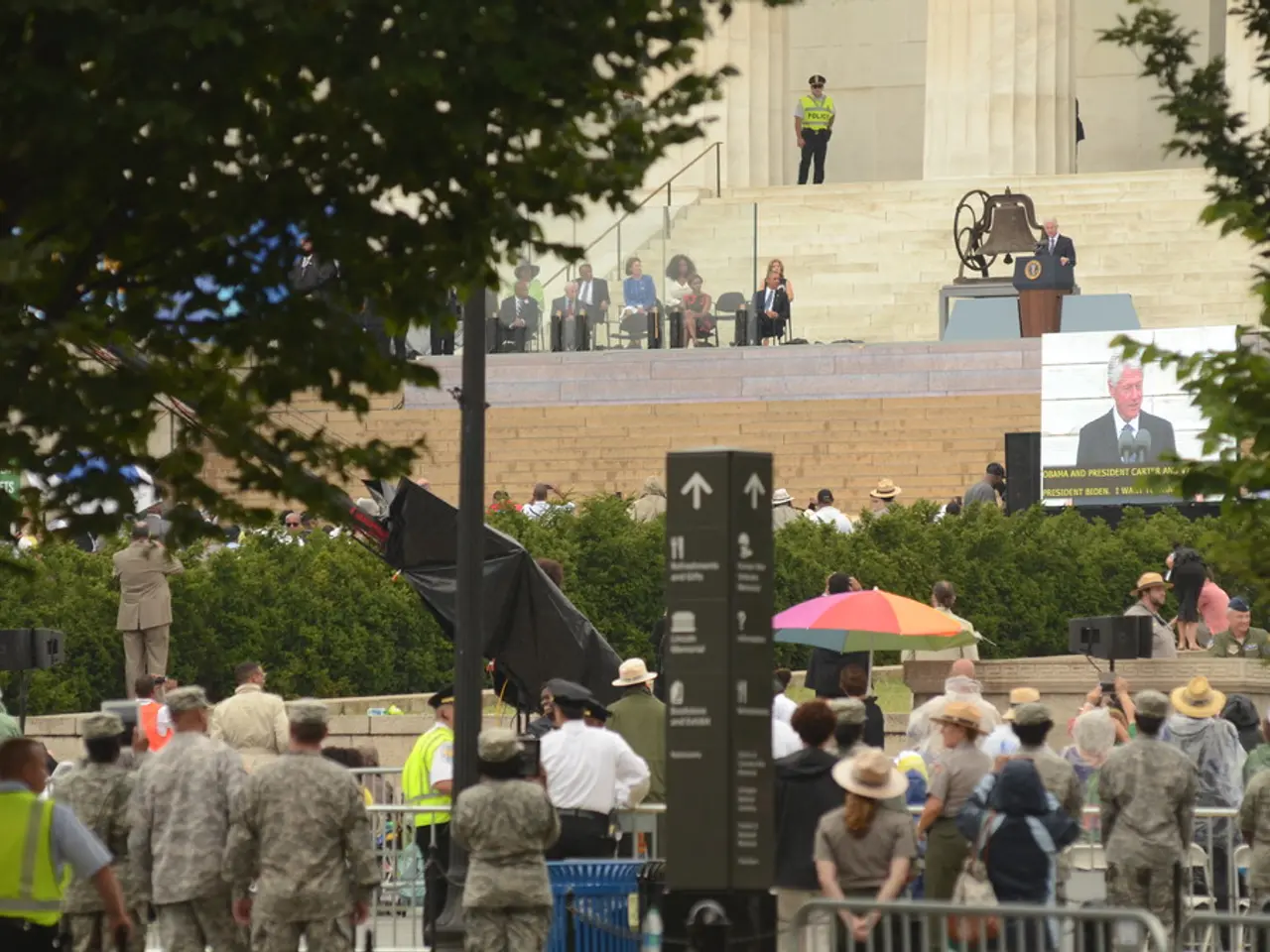Title: Iran Wants a Truce, But Israel Attacks Must Halt - Iranian Foreign Minister
Iran advocates for a temporary halt in hostilities to facilitate dialogue with the U.S.
In an appeal for diplomacy, Iranian Foreign Minister Abbas Araghtschi demands a halt to Israeli attacks as a prerequisite for potential talks with the US. Araghtschi's statement was made on state television following repeated messengers from the Americans calling for serious negotiations. However, the Iranian minister noted that the aggression will not cease until the attacks against Iran end.
Later today, Araghtschi will meet with Representatives from Germany, Britain, France, and the European Union in Geneva, focusing primarily on a diplomatic solution to Iran's nuclear program. EU foreign policy chief Kaja Kallas will also join the discussions, with the British and French Foreign Ministers in attendance.
German Foreign Minister Johann Wadephul expects progress from Tehran in light of the upcoming diplomatic initiative. Yet, he emphasizes the German commitment to ensure the security and existence of the Israeli state, a priority for the Federal Republic of Germany.
US President Donald Trump hinted at a potential military intervention by the US within the next two weeks, depending on progress in the negotiations over Iran's nuclear program. Trump suggested that there is "a significant chance" of talks with Iran taking place in the near future or not.
Israel launched an extensive attack on Iran on June 13, with the primary objective of preventing Iran from developing nuclear weapons. Since then, the Israeli military has been bombing military and nuclear facilities in Iran. Iran, in retaliation, has been firing rockets at Israeli targets. The international community has long accused Iran of pursuing nuclear weapons, which it has consistently denied.
Escalating tensions:
- Iran is willing to discuss, but on its own terms.
- Oman may be meddling in diplomatic efforts, providing a neutral space.
- Western powers like Germany, the UK, France, and the EU are involved in subtle negotiations, managing both nuclear and regional concerns.
- A compromise may be needed between the US and Iran, as they have opposing objectives: the US seeks to drastically reduce Iran's nuclear and missile capabilities, while Iran desires to maintain these critical assets.
It seems that the truce talks are at a precarious juncture, with external actors playing decisive mediation roles while the involved parties cling to their unyielding positions. The eventual outcome will likely hinge on how these international diplomatic endeavors reconcile Iran's regional aspirations with Western security concerns.
[1] Enrichment Data: Iran has been engaged in a complex diplomatic dance, as it seeks a ceasefire while upholding its core objectives. Oman appears to be playing the part of mediator, hosting meetings which could potentially pave the way for broader negotiations. Meanwhile, Western powers like Germany, the UK, France, and the EU are actively involved, tackling both nuclear issues and broader regional stability. The US, backed by its allies, is pushing for negotiations to restrict Iran’s nuclear and missile programs, but concessions seem necessary since Iran insists on preserving these capabilities. This diplomatic quagmire, thus, involves critical actors juggling differing goals and perspectives, which will likely shape the direction of the ceasefire negotiations.
The Commission has also been consulted on the draft directive related to the ongoing truce talks between Iran and the international community, given the complex politics and general news surrounding war-and-conflicts in the Middle East. As the negotiations progress, it is crucial for all parties to consider the concerns of regional stability and security, particularly the existence of the Israeli state.





